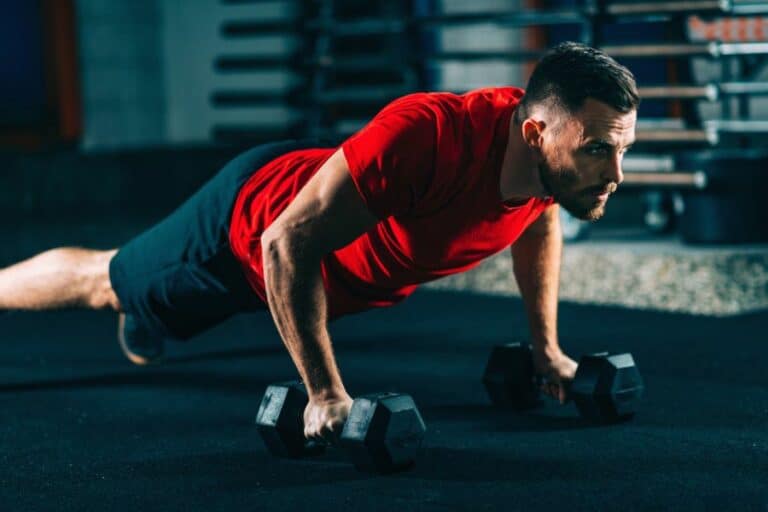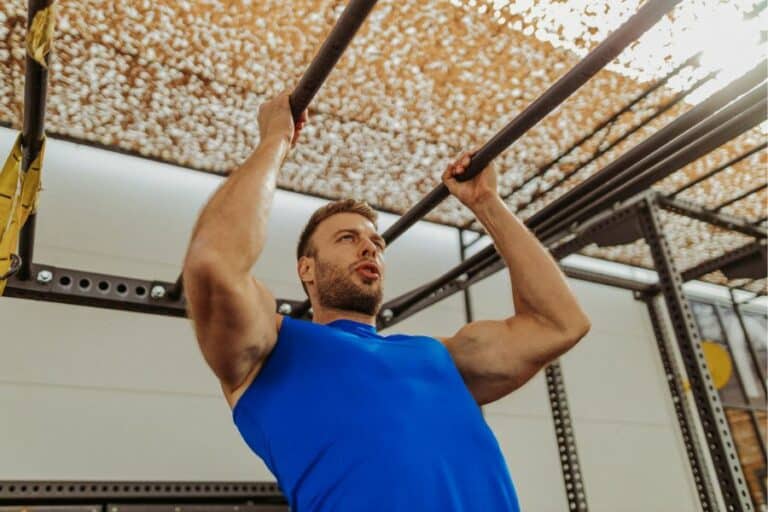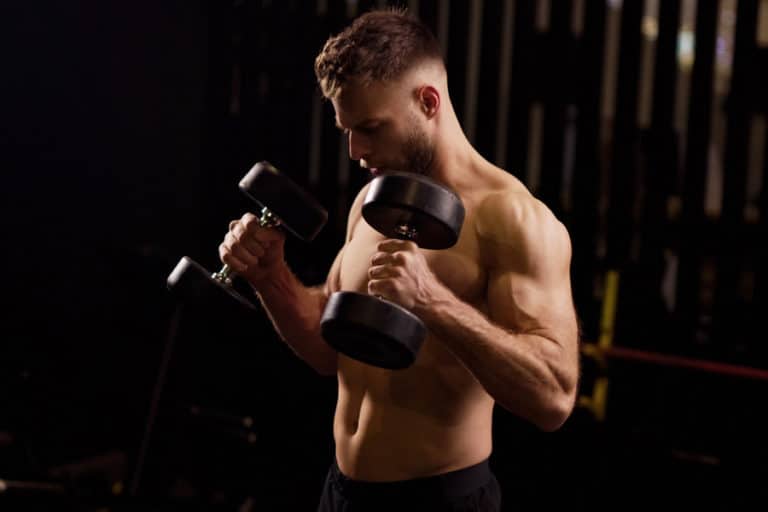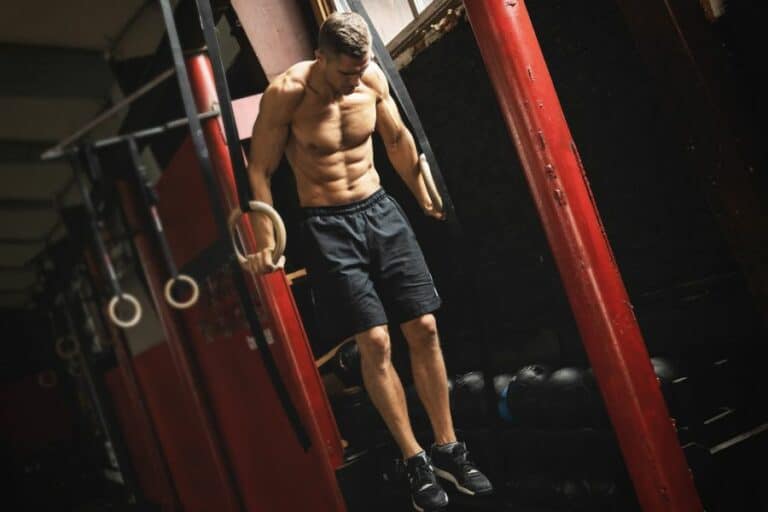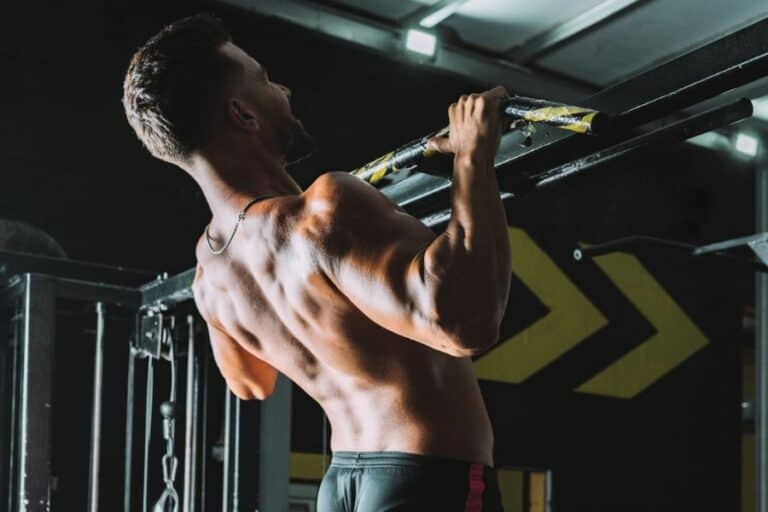Why Do My Arms Shake When I Bench Press?
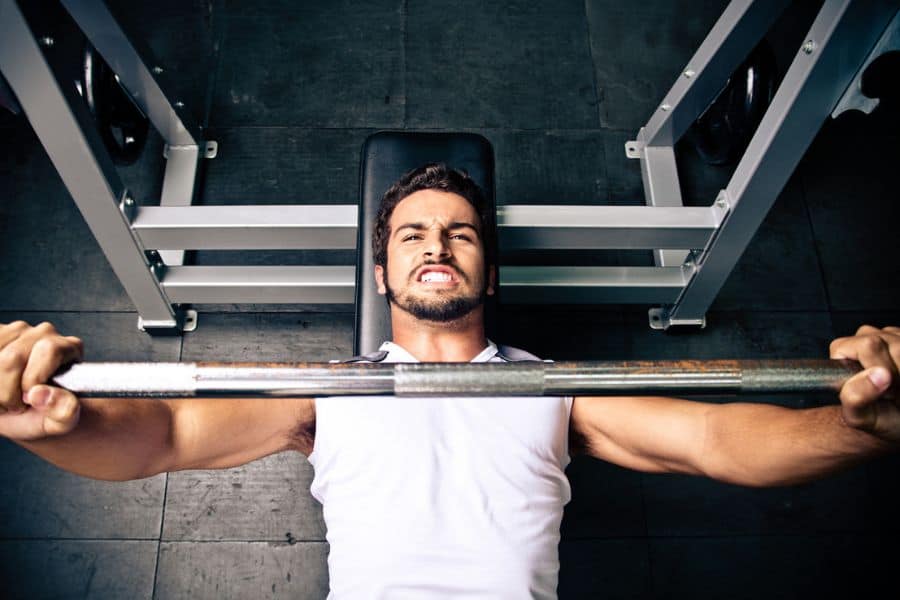
Reasons Why Arms Shake When You Bench Press | Solutions
The bench press is undoubtedly a classic go-to exercise for powerlifters. However, ensuring that your arms do not shake while you perform bench presses can be challenging. This happens more often with powerlifters who try to lift more weight than usual.
Shaking arms is a common phenomenon among lifters, and it’s important to understand why this happens in order to prevent it from happening again.
In this article, we will discuss the reasons why your arms might shake when you bench and what you can do to improve your performance.
Why Do My Arms Shake When I Bench Press?
Both amateur and experienced lifters have probably experienced some form of arm shaking when bench pressing. This is usually caused by a combination of poor form, muscular imbalances, and lack of stability when pressing.
Here is a list of important reasons why your arms might shake when you bench press:
1. Ego lifting – lifting more weight than required
One of the most common culprits for arm shaking when benching is ego lifting. When you lift more weight than your body is capable of, it can cause your arms to shake due to increased tension and pressure.
2. Muscular fatigue and weakness
The most common reason for arm shaking when bench pressing is inadequate muscle strength or endurance in the chest and triceps muscles.
When these two muscle groups are not strong enough to support the weights being lifted, your arms will likely start to shake due to muscle fatigue. Therefore, it is important to be aware of the body’s fatigue limit.
3. Muscular imbalances – unequal strength in arms can cause shaking
If your muscles are not properly balanced, it can cause one arm to be weaker than the other. This imbalance of strength can lead to your arms shaking due to unequal tension and pressure.
Additionally, not all muscle fibers fatigue at the same rate and at the same time. This is especially true among intermediate-level powerlifters. They may have bigger muscle groups that have grown stronger at a faster pace, but some smaller muscle groups have not had the same growth rate.
4. Breaking down of muscle fiber
One positive reason for the shaking of arms when bench pressing is the breaking down of muscle fibers. This type of shaking is usually caused when muscle fibers are fatigued from working out, and the body is trying to repair them. This actually leads to muscle hypertrophy and can be beneficial in the long run.
5. Not recruiting the shoulder blades
People who perform bench press without pulling back their scapula [1]National Academy of Sports Medicine: BENCH PRESS TARGETED MUSCLES, GRIPS, AND MOVEMENT PATTERNS (shoulder blade) risk under-utilizing all the stabilizer muscles involved in the movement. If the scapular muscles don’t work well, then even if your stabilizer muscles are strong, your arms may shake during the lift.
6. Weak stabilizer muscle groups
According to a systematic review published in the Journal of Physiotherapy Canada [2]National Library of Medicine: Characteristics of Stabilizer Muscles: A Systematic Review, stabilizer muscles are those that help make joints stable by contracting together or demonstrating a rapid response to disturbance through either a feed-forward or feedback control mechanism.
During a bench press stabilizing muscles like the rotator cuff muscles, triceps brachii, traps, rhomboids, and core muscles play an important role in the execution of the movement. If any of these muscle groups are weak, it can lead to arm shaking when bench pressing.
7. Diet – Shortage of nutrients and water
Lack of proper nutrition and hydration can lead to muscle twitching and shaking during bench presses. If your body is low on electrolytes, proteins, or vitamins necessary for muscle growth and maintenance, then your arms will not have the required strength to bench.
Therefore, it is important to make sure you are eating a balanced diet and drinking enough water to ensure that your muscles are receiving the necessary nutrients to stay healthy.
8. Weak grip and improper form
A weak grip can make it difficult to maintain a stable position while holding the barbell during the bench press. As a result, the barbell may shift slightly in the hands, leading to instability and shaking in the arms. It’s important to develop grip strength through specific exercises such as farmer’s walks, deadlifts, and grip strengtheners.
When performing the bench press, the proper form includes maintaining a tight and stable upper body, keeping the wrists straight, and controlling the descent and ascent of the barbell. If the form is compromised, such as flaring the elbows excessively or using excessive momentum, it can result in arm shaking.
9. Neurological factors
If your arms are shaking when you bench press, it could be due to a lack of neurological coordination. The resulting lack of mind-muscle connection can make weight-lifting activities like bench press extremely challenging and lead to shaky arms while you bench.
When you first begin to bench press, your brain starts forming new neurological adaptations [3]PubMed: Neural adaptation to resistance training to help you lift the weight. These neural pathways help your body develop the strength and endurance to support the new training stimulus.
If the essential neural connections have not correctly formed, your body will struggle to activate the right muscle fibers and you may experience arm shaking.
Solutions to Reduce Arm Shaking During Bench Presses
Shaking arms may be a sign of an underlying problem or a positive sign of your muscles adapting to the increased resistance it’s facing.
Once the underlying cause has been identified, there are several steps that can be taken to reduce arm shaking during bench presses:
1. Strengthening exercises
Incorporating specific exercises to strengthen the muscles involved in the bench press can help reduce arm shaking. Focus on exercises that target the chest, shoulders, triceps, and grip strength.
Some effective exercises include dumbbell presses, push-ups, tricep dips, shoulder presses, and grip strengtheners like wrist curls or plate pinches.
By improving the overall strength and stability of these muscles, you can enhance your ability to maintain control during the bench press and reduce arm shaking.
2. Proper form and technique
Paying close attention to your form and technique is crucial for minimizing arm shaking. Ensure that your grip on the barbell is secure, with your wrists straight and aligned with your forearms.
Keep your elbows at a moderate angle, neither excessively flared out nor tucked too tightly. Maintain a stable and tight upper body by squeezing your shoulder blades together and engaging your core muscles.
Controlled descent and ascent of the barbell, avoiding excessive bouncing or jerking, can also help reduce arm shaking and improve overall stability
3. Mind-muscle connection and focus
Developing a strong mind-muscle connection [4]American Council on Exercise: The Mind-muscle Connection is essential for maximizing control and minimizing arm shaking during the bench press. Concentrate on the target muscles throughout the movement, visualizing them working and contracting.
Maintain focus and avoid distractions, as a lack of concentration can lead to loss of control and increased shaking.
By establishing a strong mind-muscle connection, you can enhance your ability to recruit the necessary muscles effectively and reduce arm shaking during the bench press.
Conclusion
Shaking arms during bench press can be caused by multiple factors. These include weak stabilizer muscle groups, poor nutrition and hydration, improper form and technique, and a lack of neural coordination.
By incorporating specific strengthening exercises, focusing on proper form and technique, and developing a strong mind-muscle connection, you can reduce arm shaking while bench pressing. This will help you become more stable and improve your overall performance.
References
| ↑1 | National Academy of Sports Medicine: BENCH PRESS TARGETED MUSCLES, GRIPS, AND MOVEMENT PATTERNS |
|---|---|
| ↑2 | National Library of Medicine: Characteristics of Stabilizer Muscles: A Systematic Review |
| ↑3 | PubMed: Neural adaptation to resistance training |
| ↑4 | American Council on Exercise: The Mind-muscle Connection |


